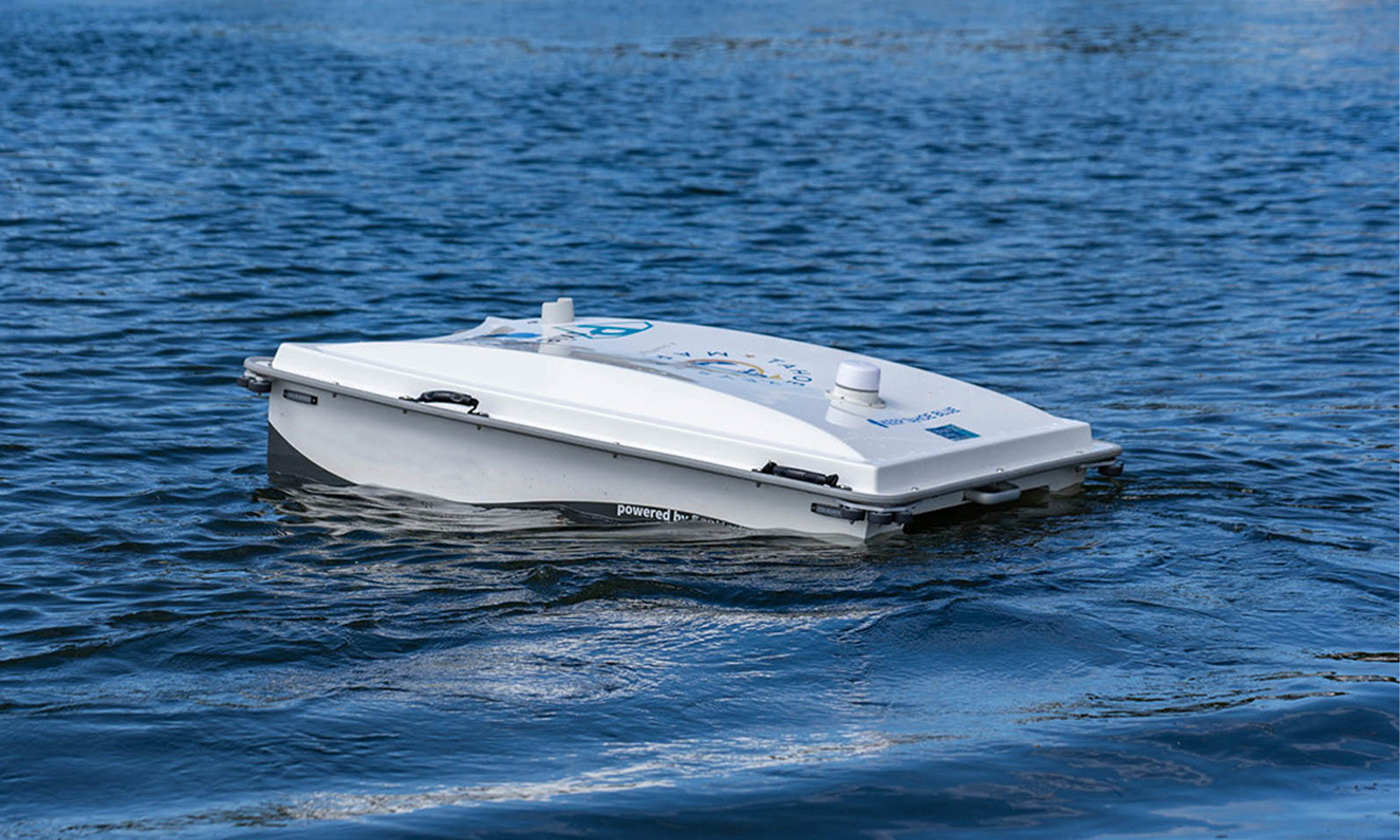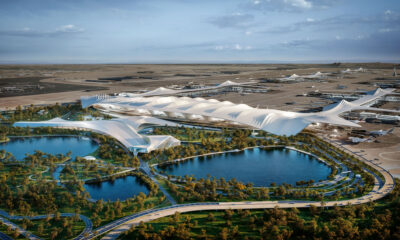News
A Floating Drone Is Helping To Clean Up Dubai Harbor’s Waters
The PixieDrone cleanup robot is on a mission to collect difficult-to-detect debris.

Dubai Harbor has employed an efficient new AI-powered worker to clean up its waters. The small, floating drone is called a PixieDrone — a waste collection machine fitted with a video camera and remote sensing LIDAR tech.
PixieDrone can operate autonomously for around six hours, collecting and sorting up to 160 liters of organic waste, plastic, glass, paper, metal, cloth, and rubber.
LIDAR (light detection and ranging) sees images in 3D, allowing PixieDrone to quickly understand its surroundings, much like the latest autonomous cars.
Created by French company Searial Cleaners, PixieDrone can travel at 3 kph for up to 12 km on a single charge. The company’s website does note that the robot can operate at a maximum ambient temperature of 50°C, which could eventually become an issue in the UAE’s sweltering summer heat.
Also Read: Google Is Developing An AI Cancer-Spotting Microscope
Measuring 1.62 by 1.15 meters, the robot cleaner is able to fit into tight spaces. Searial Cleaners says the device is specifically built for harbors and coastal aquatic areas.
PixieDrone is not the first waste collection floating drone to work in UAE waters. In 2018, Dubai Marina used WasteShark, made by the Dutch company RanMarine, to collect waste and test air and water quality.
News
Mamo Completes $3.4M Funding Round To Enhance Fintech Services
The startup will use the influx of cash to expand into Saudi Arabia and across the wider GCC while improving its product offering.

UAE-based fintech Mamo has announced the completion of a $3.4 million funding round that will help the startup extend its market presence and improve its product offering. Investors included 4DX Ventures, the Dubai Future District Fund and Cyfr Capital.
Mamo’s platform offers “payment collection, corporate cards and expense management” to help small and medium-sized businesses consolidate and streamline their operations. With the latest influx of capital, Mamo will further develop its comprehensive suite of services and begin testing its product lines in Saudi Arabia, further extending its footprint across the GCC.
Imad Gharazeddine, co-founder and CEO of Mamo, stated: “We’ve been in the market for a while now and are incredibly proud of what our team has achieved. The holistic and expansive nature of our product offering has helped us continue to grow sustainably. This additional funding will allow us to reach our medium-term goals even faster. The support from new and existing investors is a testament to our strong expertise and the ability to deliver on our customer promise”.
Daniel Marlo, General Partner of lead investor 4DX Ventures, added: “We have immense trust in Imad’s vision, leadership and Mamo’s innovative approach to provide a user-friendly and comprehensive financial solution for SMEs that makes financial management more accessible and efficient. We are proud to partner with them and support their mission”.
Also Read: A Guide To Digital Payment Methods In The Middle East
Amer Fatayer, Managing Director of Dubai Future District Fund’s investment team, also commented: “Mamo’s localized product lines serve as an infrastructure for SME payments and spend management in UAE, a segment that is underserved by the country’s current banking infrastructure. The team has taken a product-first approach to consolidating SMEs’ financial journeys and building a fintech solution deeply embedded in a business’s core operations”.
To date, Mamo has raised around $13 million in investment funding and now boasts a team of 30 people. The company’s intuitive financial services platform has allowed over 1,000 businesses to consolidate their financial operations and significantly reduce payment fees.
-

 News4 weeks ago
News4 weeks agoAmazon Prime Day 2024: Get Ready For 6 Days Of Amazing Deals
-

 News4 weeks ago
News4 weeks agoSamsung Unpacked 2024: What To Expect From The July 10 Event
-

 News4 weeks ago
News4 weeks agoCoursera Report Shows Surge In UAE Interest In AI Upskilling
-

 News4 weeks ago
News4 weeks agoMeet Dubai’s Groundbreaking Smart Robot Delivery Assistant














